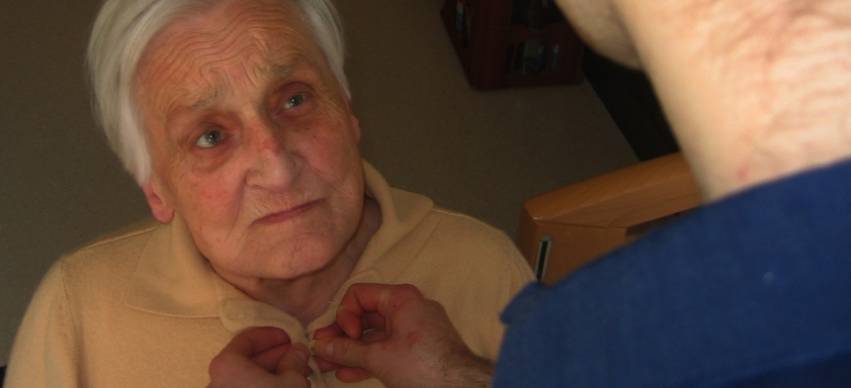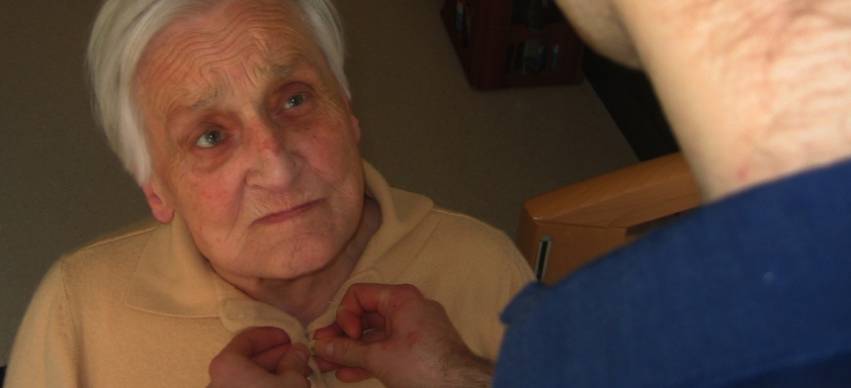Nanoparticle Therapy – An Emerging Cancer Treatment
5 Min Read


Alzheimer’s disease is a type of dementia that causes a gradual but permanent loss of memory and other thinking skills. As an individual with Alzheimer’s progresses, his or her ability to perform simple tasks, understand new information, manage everyday routines, and recognize friends and family members deteriorates until they can no longer function independently. Caring for someone with Alzheimer’s is exhausting and challenging. But with the right support network in place, stress management techniques, and caregiving strategies in your back pocket, you can continue to provide excellent care for your loved one indefinitely. Below are some helpful tips on how you can better help this person live well with Alzheimer's disease.
When you’re caring for someone with Alzheimer’s, it’s important to stay informed about the care plan for your loved one. This way, you’re able to make any necessary adjustments to the plan as your loved one’s condition progresses. If your loved one is in a care facility, ask the staff about the dementia care program. If your loved one is at home and has an Alzheimer’s care plan, make sure you’re aware of what’s on the plan so you can help implement the care strategies that are outlined.
You should be transparent with the rest of the family members and caregivers about the care plan. This way, everyone is on the same page, and there’s no room for miscommunication or confusion. Plus, being transparent about the care plan helps everyone feel more involved and vested in the care process. Alzheimer's care plans almost always include instructions for behavioral issues, medication instructions, and dietary needs.
Hiring a qualified Alzheimer’s care professional is the best way to lighten your caregiving load. When browsing the web, you can find many caregiver jobs, so you won’t face any issues trying to find a reputable partner. These caregivers understand the challenges you and your loved one are facing and are trained to provide care and assistance with the tasks and challenges of daily living. They can help your loved one eat and drink, complete hygiene tasks, and stay social and engaged with the world around them.
In addition to helping your loved one, these caregivers can also provide emotional relief and reassurance for you, the primary caregiver, who may be feeling overwhelmed and exhausted by the responsibilities of the role. When hiring an Alzheimer’s care provider, be sure to ask about their training and experience in dementia care. Look for caregivers who are certified in dementia care, have experience with the disease, and have experience working with people who have complex needs.
Ask about the caregivers’ experience working with families and dealing with different personalities and ways of handling stress. You also want to make sure that the caregivers have experience working with your loved one’s specific type of dementia.
As Alzheimer’s progresses, your loved one’s ability to engage in everyday activities and hobbies decreases. Physical activities are a great way to engage your loved one and challenge their mind while also providing a simple way to strengthen muscles and stay active.
Look for ways to bring physical activities into your loved one’s daily routine and social interactions. For example, you can create a walking group with your loved ones and their friends. Or you can take your loved one to the park or visit friends who might not be able to visit them at home. Physical activities can help your loved one stay active and engaged while also serving as a social outlet. They also help to build confidence, strength, and coordination as your loved one gets better at the activities.
As the disease progresses and your loved one’s cognitive abilities decline, they may become more disorganized and less able to follow their daily routine. Try to maintain your loved one’s daily routine as best you can. For example, if your loved one normally eats lunch at 12 p.m., don’t let them eat at 1 p.m. just because they forgot what time it is. When possible, try to keep your loved one’s routine as consistent as possible. This can help your loved one feel more secure and less anxious.
It can also make it easier for your loved one to follow their daily routine. The structure can also help support your loved one’s confidence and self-esteem. Make sure your loved one knows what to expect throughout the day, whether it’s a certain activity or a visit from a friend or family member.
As your loved one’s disease progresses, they may become frustrated with their abilities, their situation, and even you as their loved one’s primary caregiver. They may become angry, frustrated, and irritable more quickly and easily than they used to.
Your loved one may also have trouble communicating their feelings and thoughts. They may have trouble expressing gratitude for your help and support, which can be frustrating for both of you. When this happens, just remember that it’s a part of the disease, and your loved one isn’t doing it out of spite or anger. Be patient, and don’t take these things personally. Try to identify triggers for your loved one’s frustration and irritability and look for ways to avoid or address them. For example, if your loved one becomes frustrated while eating, try eating meals that are easy to chew and swallow and that are sweet, like applesauce or pudding.
Caring for a loved one with Alzheimer’s is challenging, but with these recommendations, you will surely help your loved one. Stay informed about your loved one’s care plan, get a hand from a professional caregiver, try physical activities with your loved one, establish routines and provide structure, and be patient and don’t take things personally. By following these tips, you can better help this person live well with Alzheimer's disease.